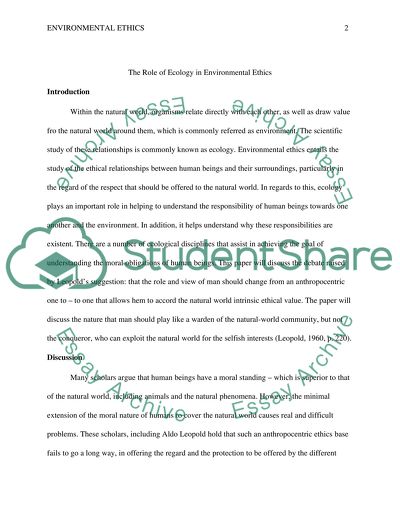Cite this document
(The Role of Humans in Environmental Ethics Essay Example | Topics and Well Written Essays - 4000 words, n.d.)
The Role of Humans in Environmental Ethics Essay Example | Topics and Well Written Essays - 4000 words. https://studentshare.org/sociology/1397630-final-environmental-ethics
The Role of Humans in Environmental Ethics Essay Example | Topics and Well Written Essays - 4000 words. https://studentshare.org/sociology/1397630-final-environmental-ethics
(The Role of Humans in Environmental Ethics Essay Example | Topics and Well Written Essays - 4000 Words)
The Role of Humans in Environmental Ethics Essay Example | Topics and Well Written Essays - 4000 Words. https://studentshare.org/sociology/1397630-final-environmental-ethics.
The Role of Humans in Environmental Ethics Essay Example | Topics and Well Written Essays - 4000 Words. https://studentshare.org/sociology/1397630-final-environmental-ethics.
“The Role of Humans in Environmental Ethics Essay Example | Topics and Well Written Essays - 4000 Words”. https://studentshare.org/sociology/1397630-final-environmental-ethics.


